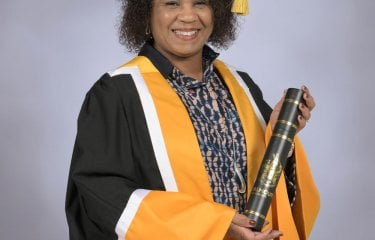
In the evolving landscape of the creative industries, the emphasis on visibility and resilience has become more crucial than ever. Falmouth University recently had the honor of welcoming Pawlet Brookes MBE as an honorary fellow during its graduation ceremonies. As an influential cultural leader, founder of the Serendipity Institute for Black Arts and Heritage, and a dedicated advocate for underrepresented voices, Brookes’s insights offer valuable guidance for emerging creatives navigating a competitive sector.
Understanding the Role of Visibility and Resilience in Creative Careers
Brookes’s career underscores the significance of making marginalized voices visible within the arts. She emphasizes that representation goes beyond mere visibility; it involves creating space for diverse perspectives, cultural identities, and histories that are often sidelined. For students and professionals at Falmouth University, this translates into developing not only artistic skills but also understanding the social impact of their work.
Resilience, according to Brookes, is equally vital. The creative sector is inherently challenging, often marked by rejection and financial uncertainties. Her advice to emerging creatives is to embrace failure as part of the learning process. Every “no” encountered along the way offers an opportunity to refine one’s approach and strengthen resolve.
Why Falmouth University Is a Nurturing Ground for Creative Resilience
Located in Cornwall, Falmouth University provides an inspiring environment that fosters community and resilience. The university’s focus on real-world practice, through live projects and industry collaborations, equips students with practical experience that prepares them for the realities of creative careers. Brookes’s own connection to Cornwall highlights the region’s unique capacity to nurture talent, blending the tranquility of coastal landscapes with vibrant artistic opportunities.
Brookes describes Cornwall as a place where artists can focus, connect, and grow. Its strong sense of community and access to inspirational environments make it an exemplary setting for cultivating resilience and voice in the arts.
Advice for Graduates: Building a Sustainable and Impactful Artistic Career
Brookes offers pragmatic advice for graduates entering the difficult yet rewarding world of creativity. Key among her tips is the importance of intentional connections: “The people you meet now will matter in the decades to come. Choose your network wisely.” Building relationships with peers, mentors, and industry professionals lays a foundation for future collaborations and opportunities.
She also encourages graduates to be strategic and patient. “Find something with a bit of flexibility to hone your skills, then approach your next project more strategically.” This approach allows creatives to develop resilience over time, learning from setbacks without losing focus.
Fostering Resilience in a Competitive Sector
According to Brookes, resilience involves maintaining focus amid uncertainty. Creatives should stay adaptable, continually learn new skills, and remain patient. When faced with rejection, she suggests asking, “What can I do differently next time?” rather than abandoning efforts. Persistence and self-awareness become crucial assets for sustaining a career in the arts.
The Significance of Digital and Print in Preserving Creative Legacies
Brookes stresses the importance of documenting and sharing work in both digital and print formats. While digital platforms facilitate immediate visibility, print offers permanence—something she values as a way to ensure creative voices endure beyond the fleeting nature of online media. This concept resonates with Falmouth’s approach to embedding lasting impact in its students’ practices.
Implications for Future Creatives at Falmouth University
Brookes’s reflections serve as an inspiring call to action for students and alumni. Emphasizing the importance of visibility, resilience, and community, she encourages the next generation to view setbacks as stepping stones and to use their voices to impact society meaningfully.
For aspiring creatives, engaging deeply with the rich opportunities at Falmouth University—from its dynamic arts programs to industry collaborations—can foster the resilience required for a lasting career. The university’s focus on real-world application aligns well with Brookes’s ethos of practice-based teaching that emphasizes the importance of lived experiences.
Explore Programs at Falmouth University Today
If you are passionate about developing your creative resilience and making your voice heard, consider exploring Falmouth University’s diverse programs. Whether through undergraduate or postgraduate courses, the university provides the tools, mentorship, and community support necessary to thrive in today’s competitive sectors.
Take the next step in your creative journey: submit your application today and become part of a vibrant community dedicated to innovation and social impact.
Connect with Industry Experts and Mentors
At Falmouth, students benefit from mentorships, industry links, and real-world projects that build resilience and visibility. Engaging with tutors and peers—who often become lifelong collaborators—creates a resilient network that sustains careers long after graduation.
Conclusion
Pawlet Brookes’s insights reinforce that the heart of a successful creative career lies in the ability to be visible and resilient. Her work and teachings emphasize the importance of making marginalized voices heard and maintaining perseverance amid sector challenges. Falmouth University continues to nurture these values, offering an environment where students can develop their unique voices and make a lasting impact in the arts.
If you aspire to build a career marked by authenticity, resilience, and social influence, Falmouth University provides the ideal platform to start. Explore your options today and join a community committed to shaping the future of creative industries.

